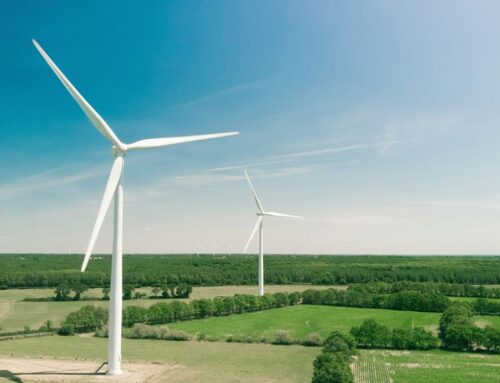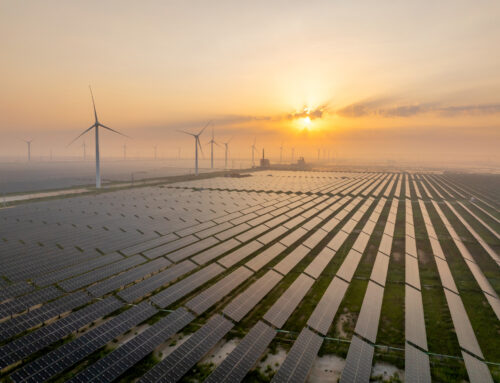Colorado losing a third major clean energy project as subsidy cuts, tariffs roil markets
June 25, 2025
Amprius Technologies said Tuesday it will not move past the design stage on a $190 million vehicle battery factory at an empty warehouse in Brighton, canceling another of the major clean energy projects once touted as bringing high-salary, new-era jobs to Colorado.
Amprius and local and state officials announced in 2023 the company would convert more than 700,000 square feet of an Adams County warehouse to a battery maker with 332 jobs in the first phase over two years, with capacity to expand to up to 10 gigawatt-hours of production. The project was to employ a $50 million grant from the U.S. Department of Energy in the Biden administration’s Bipartisan Infrastructure Law, as well as millions of dollars in job incentives and tax forgiveness from Colorado and local governments.
“At this time, there are no immediate plans to move forward with the next phase of the Colorado facility,” Amprius said Tuesday through a public relations agency, in response to questions about the project. “We have completed the design phase and continue to closely monitor market dynamics. Building a domestic supply chain for next-generation batteries is important, but also uniquely challenging.”
Amprius declined to answer specific questions about the impact of President Donald Trump’s frequently changing tariff regime, uncertainty whether Congress will honor past clean energy subsidy promises, or increased competition from China and other Asian battery makers.
“Manufacturing these cutting-edge battery technologies at scale in the U.S. requires a highly capital-intensive process,” the Amprius statement said. “Beyond cost, it also demands deep technical expertise, capabilities that are still developing in the U.S. Meanwhile, other countries have spent years building mature, cost-efficient battery industries, giving them a significant head start.”
The company, based in Fremont, California, said it was fulfilling demand for its batteries with “global” contract production.
“While we are disappointed that Amprius Technologies will not move forward with its plans to expand in Colorado, our state’s thriving business climate continues to support the renewable energy transition and support the growth of the renewable energy industry,” said Alissa Johnson, communications director of the governor’s Office of Economic Development and International Trade. “Our talent pipeline, collaborative network of higher education and research institutions, and shared commitment to renewable energy make Colorado the perfect place for this important industry to excel.”
Yet Amprius pulling the plug in Brighton is at least the third major clean energy economic development project recently celebrated by state and local officials to be canceled at the starting gate. VSK Energy announced plans in 2023 to build solar panels at another Brighton facility with a $250 million investment and up to 900 new jobs. The shared venture with an India-based solar firm died in 2024.
Adams County officials referred questions to Brighton’s economic development team, who did not respond to questions Tuesday.
Meyer Burger, based in Switzerland, had announced 350 jobs and a $400 million investment to make solar cells at a defunct microchip factory in Colorado Springs, using Inflation Reduction Act tax credits and a $300 million Department of Energy loan. The company canceled the plans last year, when Joe Biden was still president, citing market factors and recent U.S. decisions to allow cheap imports of some solar products made overseas.
The project losses are clearly part of a pattern in clean energy exacerbated by Republican plans to cancel many tax credits and subsidies, which previously promoted development of everything from panel factories to home solar installation, said Colorado Solar and Storage Association executive director KC Becker.
Tariff whiplashes and changing policies on important material imports also complicate any business planning, Becker said. Eliminating the federal tax credit that makes rooftop solar affordable over time, as budget planners in the GOP majority want to do, will drop Colorado’s home solar industry and thousands of employees “off a cliff,” she said.
While criticized for “picking winners” through subsidies and increasing budget deficits with clean energy spending, the Biden administration had grand plans for moving the economy away from fossil fuels. Biden’s agencies, echoed by Colorado political leadership, wanted to see solar installations using new panels built in American factories, and replacement of gasoline cars and trucks with EVs using U.S.-made batteries.
Internationally, the fast-changing U.S. policies are “ceding the ground on advanced manufacturing onshoring to other countries, because other countries are going to continue to move forward with investing in wind and solar,” Becker said.
The governor’s economic development office said other clean energy manufacturing projects announced in recent years are still moving forward, including Thornton-based Solid Power’s expansion of demonstration manufacturing, and Peak Energy creating an engineering center in Broomfield to plan production of advanced sodium-ion batteries.
“Since July 2024, the Colorado Economic Development Commission has approved job growth incentives for six companies working in or supporting the renewable energy space, projected to create up to 967 new jobs,” the office’s statement said.
Search
RECENT PRESS RELEASES
Related Post




